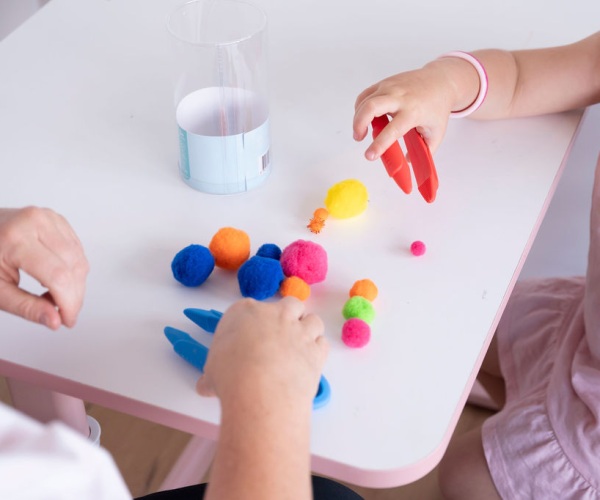Debunking Common Myths About Child Therapy
When your child starts therapy, it’s normal to have questions — and sometimes, misconceptions can make the process feel more intimidating than it needs to be. In this blog we’ll clear up some common myths so you can feel confident about the therapy process.
Common Myths About Therapy
There are several misconceptions about Speech Therapy and Occupational Therapy that can sometimes create uncertainty. Let’s address a few of the most common myths:
Myth 1: “Children will outgrow speech or developmental delays on their own.”
Reality: While some children naturally catch up, many require targeted support to develop essential skills. Early intervention is key to building confidence, independence and long-term success.
Myth 2: “Therapy is only for severe conditions.”
Reality: Therapy benefits individuals with a wide range of challenges, from mild speech difficulties to complex developmental conditions. Support at any level can make a meaningful difference.
Myth 3: “Therapists just play with children.”
Reality: While therapy often looks like play, every activity is carefully designed to develop specific skills and achieve therapeutic goals in a way that meaningfully reflects how children experience the world and learn (i.e. through play).
Myth 4: “Once therapy starts, it will last forever.”
Reality: Therapy is designed to be time-limited, with the goal of developing independence and skill mastery. While some clients can see early change, others find that change can take time. Progress is regularly reviewed, and therapy continues only as long as it is beneficial. It is important to continue therapy until you have reached your goals to support the best outcomes.
Myth 5: “Parents don’t have a role in therapy.”
Reality: Parents are an essential part of the therapy team. What your child learns in sessions works best when practised and reinforced at home. You are your child’s biggest support and cheerleader.
Myth 6: If my child resists therapy, it’s not worth continuing
Reality:
It’s common for children to feel unsure at first. Building trust with a therapist can take time. With patience, encouragement, and consistency, most children begin to feel more comfortable and engaged.
Understanding what to expect can make therapy feel less overwhelming and more hopeful. At Prosper Health Collective, we walk alongside you and your child every step of the way—whether that’s building skills in session, supporting you as parents, or celebrating progress together. Therapy is a journey, and with the right support, your child can make meaningful progress. Please reach out to us if you have any questions or would like further information regarding your child’s support.
